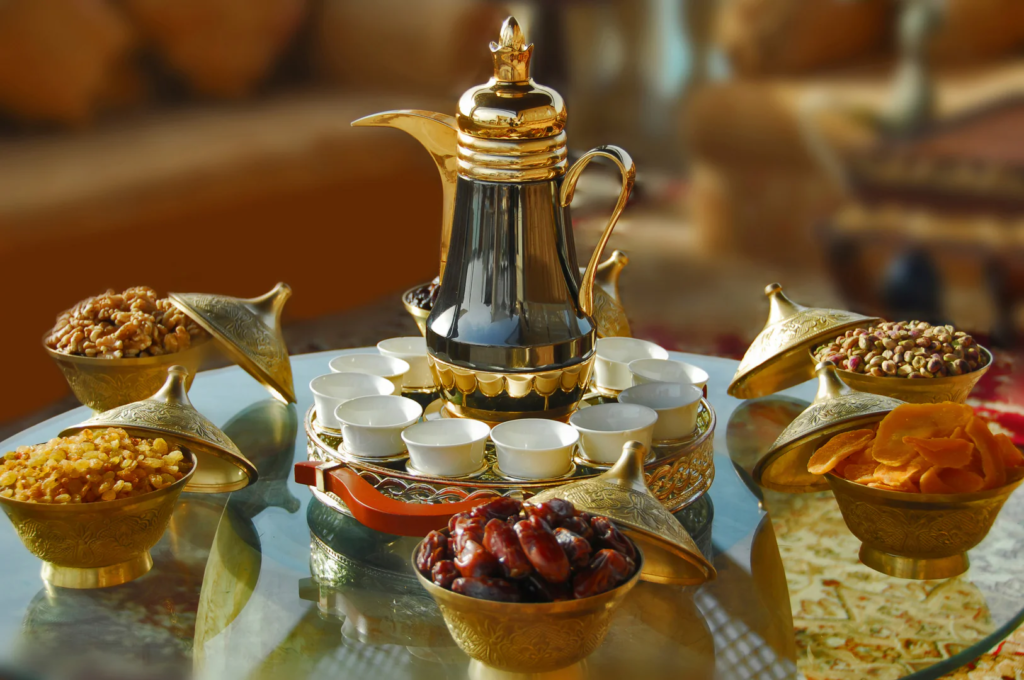Introduction
Saudi coffee, also known as Gahwa, is far more than a beverage — it’s a cultural symbol, a welcoming gesture, and a ceremonial tradition that reflects the values of Saudi Arabian hospitality. Made with lightly roasted beans and infused with aromatic spices like cardamom and cloves, Gahwa is integral to the Saudi way of life. In this blog, we explore the rich taste and time-honored traditions that make Saudi coffee truly exceptional.

1. A Symbol of Hospitality
Serving Gahwa is one of the most well-known gestures of hospitality in Saudi Arabia. Guests are traditionally offered coffee as a sign of respect and welcome. The act of pouring and receiving coffee is steeped in social etiquette that highlights generosity and unity.
2. Rich, Spiced Flavor Profile
Unlike Western coffee, Saudi Gahwa is made from lightly roasted green beans and infused with spices such as cardamom, saffron, and cloves. This combination creates a light, golden drink with a floral and spicy aroma, offering a completely different taste experience from espresso or drip coffee.
3. Traditional Serving Rituals
Gahwa is served in small cups called finjan from a distinctive pot known as a dallah. The server holds the dallah in the left hand and pours with the right, beginning with the eldest guest. The small servings allow for frequent refills and continuous conversation, reinforcing social bonds.
4. Deep Cultural Roots
Historically associated with Bedouin tribes, Gahwa has been a staple in desert life, offering warmth and connection in harsh landscapes. Today, it remains a proud symbol of Saudi identity and is commonly served at family gatherings, business meetings, and national celebrations.
5. Recognized by UNESCO
In 2015, Saudi Arabia’s Gahwa tradition was inscribed on the UNESCO Intangible Cultural Heritage List, affirming its global cultural significance. This designation honors the ceremonial preparation, presentation, and values that Gahwa represents.
6. Evolving With Modernity
While the tradition remains strong, Gahwa is also evolving. Today, you’ll find artisanal Gahwa cafes in Riyadh and Jeddah offering contemporary twists on the traditional brew. Some blend in rosewater or add local dates for a modern fusion of taste and tradition.
7. A Shared Experience
Above all, Gahwa represents connection. Whether among family, friends, or strangers, sharing a cup fosters conversation, respect, and mutual understanding — all central values in Saudi culture.
Conclusion
From its spiced aroma to its ceremonial roots, Saudi coffee is more than a drink — it’s a bridge between generations, a warm welcome to strangers, and a proud reflection of cultural heritage. If you ever find yourself offered a finjan of Gahwa, accept it with gratitude — you’re not just drinking coffee, you’re partaking in centuries of tradition.
Want to learn more? Check out our article on Arab hospitality traditions to discover the broader cultural context behind this warm and welcoming practice.
